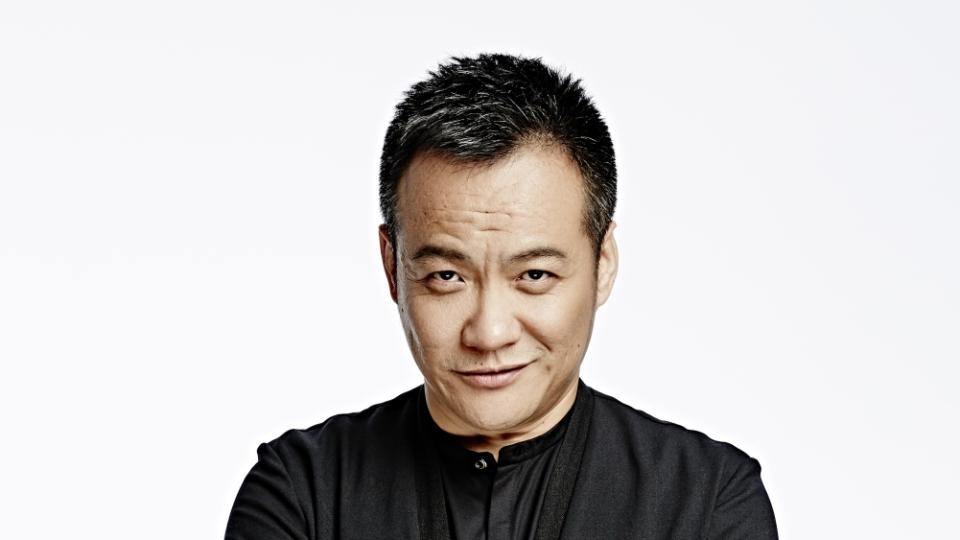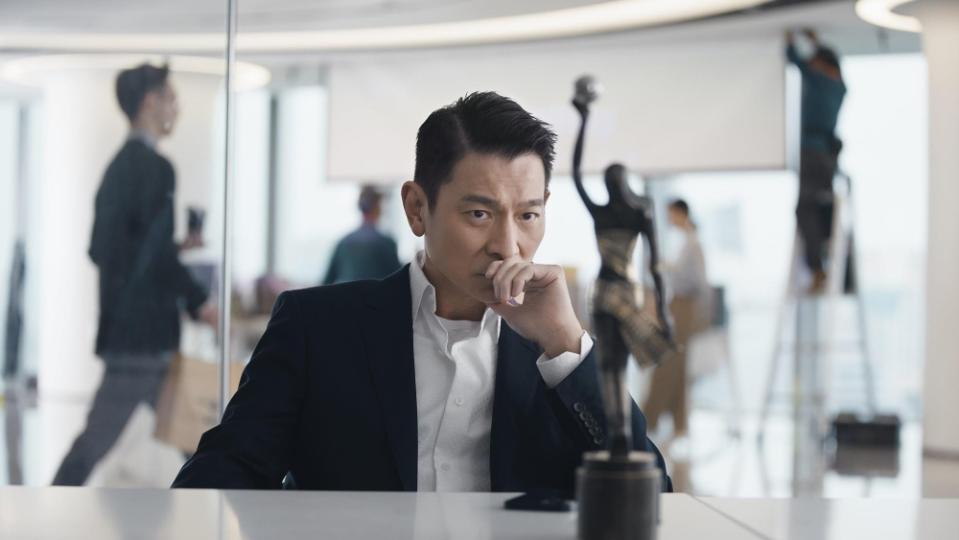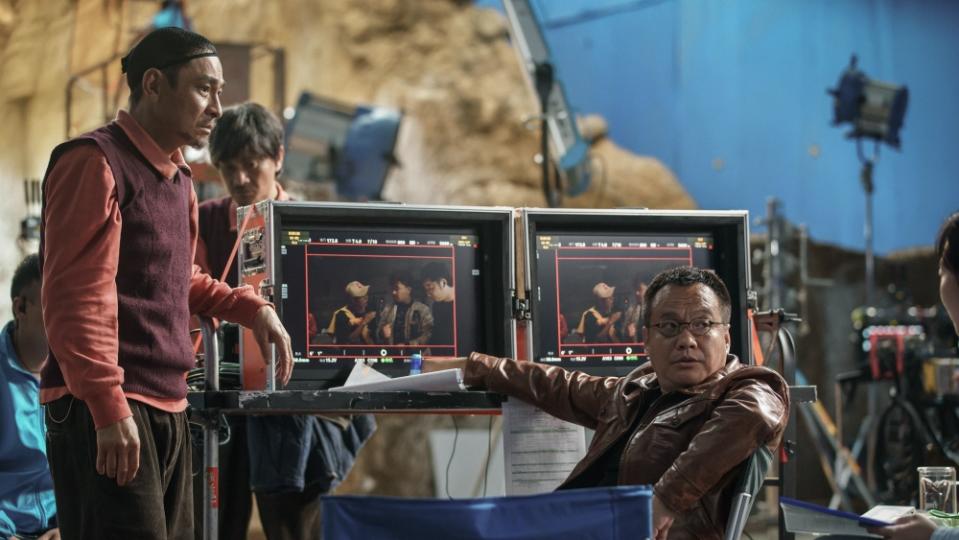Ning Hao Talks Toronto Satire ‘The Movie Emperor’ and Persuading Andy Lau to Be Humiliated: ‘This Was Me Challenging Him’ (EXCLUSIVE)

That the Toronto world premiere of “The Movie Emperor” is sponsored by high-end home appliance manufacturer Dyson is deliciously and understatedly ironic. In the movie, innocuous-seeming domestic equipment — from the humble suitcase to floor sweeping robots — run quietly amok.
So, too, do other forms of supposedly convenient technology, from dashboard cameras to smartphone apps, which seem to conspire to crush the ego of the film’s protagonist, a major movie star trying to get into his role as an angry pig farmer.
More from Variety
Breaking Down TIFF's Best Moments, From Lil Nas X's Triumph to 'American Fiction' Oscar Buzz
Talking Heads Concert Film 'Stop Making Sense' Becomes Imax's Highest-Grossing Live Event
That the analog pigs and their distracted human owners are just as much of a handful makes the film an inky, black-humored pastiche on modern high-tech society, our obsessions with self-image and the arrogance of the movie industry.
Chinese director Ning Hao, previously the purveyor of arty satire “Mongolian Ping Pong” and the more scattershot (and commercially successful) “Crazy Racer” and “Crazy Alien,” has always had a cruelly funny streak. On at least one occasion, his willingness to pick at contentious issues got him into bad odor with the Chinese authorities. But, “The Movie Emperor” — and recent $500 million-grossing hit “No More Bets,” which Ning produced — shows he has moved on and is able to find plenty more targets for his satire.

“The Movie Emperor,” which is next set as the closing gala presentation of the Busan International Film Festival, may also be Ning’s most controlled, twisted and accessible film for non-Chinese audiences.
Ahead of the Toronto premiere, Ning spoke to Variety about his process, persuading Hong Kong superstar Andy Lau to be pilloried in the name of entertainment and where the Chinese film industry is headed.
“The Movie Emperor” has a different feel from many of your previous films and so many targets for its satire. Where did this film originate?
One of the inspirations is simply from the era we live in, the information era, one in which short video has become hugely popular. I’ve often wondered why filmmakers were unable to make content that is more intriguing and popular than TikTok.
Another thing is that I have wanted to make content that is more grounded. I want to focus on my surroundings, the current era and things that are happening in our everyday life.
If you’re using a major film star to point the finger at real life, it’s not the same thing.
Well, that’s one of my points. The internet has narrowed the gap between celebrities and [normal] people. Celebrities’ halos are slowly fading. That’s become a problem for them and is something they have to adjust to.
Some people say there are no film stars any more.
That may be one of the most iconic changes of the information era.
Daniel Yu, a former business partner of Andy Lau, is credited as the lead screenwriter. What was the development process?
It was a collaborative effort between myself and Daniel Yu. Even though this is a film that we targeted toward Andy Lau, it’s not specifically about him. The leading character is more of a symbol, rather than a real person.
Also, in the past there was a distance between the films from Hong Kong and those from [mainland] China. Hong Kong films were known to be very metropolitan. But as time goes on, Hong Kong films and their audiences are changing.
How did you go about persuading Andy Lau to take this role. You take his quest for physical perfection, beauty and eternal stardom and then humiliate him. You make him a pig farmer, a liar, an oaf, a cheat. Why was he willing to expose himself so?

Well, the physical perfection aspect of Andy Lau is real. He looks that way. That’s literally how he is. He styles his hair before coming on set every day.
Second, the character’s name, Lau Wai Chi, is not Andy Lau’s actual Chinese name. It is a combination of three major Hong Kong celebrities: Andy Lau (Lau Tak-wah), Tony Leung (Leung Chiu-wai) and Stephen Chow (Chow Sing-chi). Andy was very straightforward about the role. He thought about this character for a while and was like, “OK, sure, I’ll do it.”
Honestly, he and I are very familiar. He understood how I’d be. And we’ve been thinking about a collaboration for many years. Finally, we found the right topic — making fun of a celebrity.
That’s what you come up with after years of deep thought?
It was more than that. Andy has always said that he can do comedy. So, this was me challenging him.
Is Andy Lau also an investor in this film?
I can’t tell you that.
Let’s talk about the visuals and what we see on screen. It is a very clean, precise looking film. And yet, it’s also full of visual gags. Was it possible to write all of them into the screenplay or were some improvised?
I try to imagine as much as possible all of the fun gags during the development process. But when you are on set, there is always uncertainty and that leaves room for improvisation.
A lot of my preparatory work is always a focus on the structure of the film. For example, with “Crazy Stone” I prepared as much as possible beforehand, and a lot of the gags were created during the development process. But in other films, where the actor immerses themselves in the character, there can be a lot of improvisation.
Some of the visual jokes become recurring motifs, while others just flash by. For instance, the scene in the car park where the red lights from the dash cams all seem to be pointing at Lau.
Oh, I didn’t think that was a joke.
Are you also being a little bit self deprecating putting yourself in the role of the film director in this in this movie, one who seems to be obsessed with going to film festivals?
I absolutely had to do it. How else could I have persuaded Andy Lau to step up?
Put “The Movie Emperor” in context with the other 10 or so films that you have made as a director.
Well, we are all getting older. So yes, maybe it is more mature. But I don’t only want to focus on the market. I want to keep trying different things, different styles.
This is a long way from “Mongolian Ping Pong”!
Well, I’ve learned from my past works.
The mainland Chinese film industry has had an incredible rebound this year. Box office is nearly back to pre-COVID levels. Chinese films have an 85% market share in 2023. And you yourself have had a mega-hit with the supposedly fact-based “No More Bets.” What is working so well in China?
Over the past decade, the main goal of the Chinese film industry has been to construct the market, build solid foundations for this market.
This goes hand in hand with the urbanization of China. Cinemas have become an iconic piece of new cities. The number of cinemas has increased dramatically in mainland China. There has been mass migration from rural areas to the cities and, there, people are adapting and making watching films a bigger part of their life.
Chinese films seems to be full of relevant current stories, many drawn from real life, including “No More Bets.”
In the production of this film, and in “No More Bets,” I just tried to align the visual aesthetics with the sense of metropolitan cities.
The place where I grew up [Taiyuan, Shanxi Province] was more industrialized. But one of the most characteristic textures of more modern cities it that they are more urban and more digitalized. My past films tended to focus more on blue-collar workers. But the people who live in the metropolises nowadays, they don’t really work in factories anymore. They mostly work in offices.
So, the aesthetics and the composition of my films have transitioned into a more white-collar feel.
Toward the end of this film, you make several statements about young people having more insight and knowledge than the older generations. Is that something that is also true of the film industry?
It’s the sort of change that I have experienced. And not just in China, but also around the globe.
Audiences nowadays are better educated and they’re more rational about how to view the content of the films. They are more demanding and require more rationality of the films themselves.
Where are you headed with your company, Dirty Monkey?
The foundation of Dirty Monkey is that I want there to be more professional filmmakers to create more films for Chinese audiences. With the film market expanding, there are now more kinds of film for people to watch. There are many professionally-trained directors, but some have lacked the opportunity. So, I’m making a platform for their work to come to fruition. I want there to be more young filmmakers that are documenting contemporary life. I hope that Dirty Monkey will have three to four projects coming out each year.
And in terms of my own work, I want to put more focus on my own experience and my own thoughts about the world.
You’ll keep on directing, as well as producing?
Yes, absolutely. I may keep filming, even if it is just a blog of my own life.
Egomaniac!
Very true!

Best of Variety
Sign up for Variety’s Newsletter. For the latest news, follow us on Facebook, Twitter, and Instagram.
